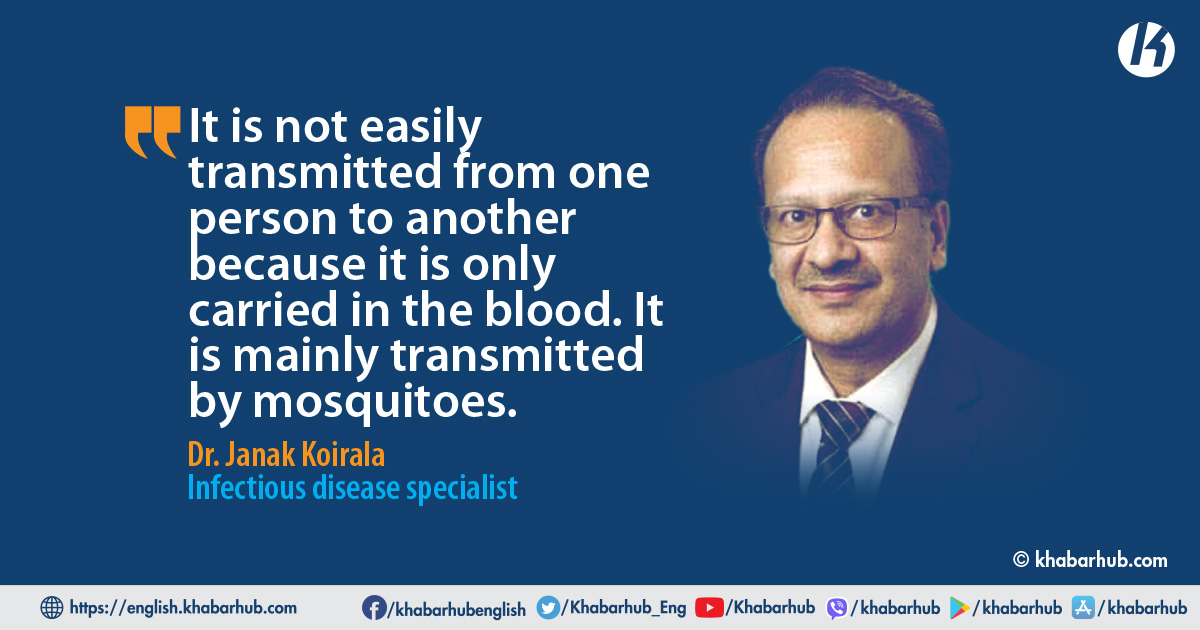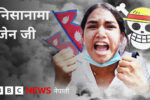KATHMANDU: Cases of mosquito-borne Japanese encephalitis have risen in Nepal due to the rainfall and changing weather patterns.
Health experts say climate change is one of the major reasons for the spread of the disease. The disease that used to appear and spread largely from May to July is currently increasing as mosquitoes survive longer in warmer conditions.
Japanese encephalitis caused by a different mosquito species is considered hazardous. This disease, which is caused by the bite of a mosquito named Culex, can be cured after treatment, but the condition can be severe.
Here’s an edited part of a conversation with infectious disease specialist Dr. Janak Koirala. Excerpts:
Lately, while dengue infection is on the rise, the problem of Japanese encephalitis (brain fever) is also increasing in many districts of Nepal. How dangerous is this disease?
A type of virus called Japanese encephalitis causes unconsciousness by entering the human brain. It is also a mosquito-borne disease like malaria and dengue. But it is transmitted after being bitten by a different type of mosquito called Culex.
Where is this mosquito found?
It is more common in the Terai region and is active during summer. This is seen in the northern part of India and the southern part of Nepal.
But these days, due to high temperature, cases have been increasing in areas such as Kathmandu and other hilly regions due to the increase in temperature and pollution.
How is it transmitted?
As I said earlier, it is transmitted by a different type of mosquito. This, however, does not recur. When a female mosquito bites a person, another mosquito might become a carrier of the virus. The mosquito then transmits when it bites another person.
Looking at the world statistics, every year at least 50,000 people are infected and 15,000 die. Based on this, if dengue has become a pandemic in Nepal, how likely is it to spread?
In fact, this was seen in the United States and India for quite a long time back. It is a disease that spread about 40 years ago.
It is also seen in Nepal but since people who have strong immunity, they do not get affected easily.
It should be checked by a blood test to see if it is present or not. Since this is a chronic disease, it also has a vaccination.
What are the symptoms?
This is an inflammation of the brain that can cause headaches, fever, confusion, seizures, and, in some cases, even death.
In some people, it will heal itself after a few days of fever and sore throat. Some people get dizzy and faint with headaches and vomiting. If it affects the elderly, this can be cured.
Many people have the notion that if this disease affects a person at a young age, it will affect the mind even later. Is it true?
If it affects a small child, it can damage the brain for a long time. However, this does not happen to all. This is a rare case.
Even in the elderly, if the effect is intense, it can even lead to paralysis.
How do people know whether it is a common mosquito bit or Japanese encephalitis?
Initially, everyone will have a fever. If you get a cold, we call it Coronavirus. We undergo tests accordingly.
However, if a person does not have a cold but a severe headache and vomiting, and he fainted, it can be Japanese encephalitis.
The tests are not so easy. In particular, dengue is present in 75 districts, but if people in 10 to 12 districts come with such symptoms, we will test for dengue.
Coronavirus and dengue tests are done immediately and the report comes. For Japanese encephalitis, it should be sent to (Nepal Public Health Laboratory) to be tested by drawing water from the back or blood.
How can we avoid this disease?
Since it is transmitted by mosquitoes, firstly, we need to protect ourselves from mosquito bites.
Moreover, the use of insect repellent, wearing long-sleeved garments and getting vaccinated before traveling can be recommended.
Covering the wells, clearing bushes near the house, filling holes, if any, sprinkling kerosene oil, preventing mosquitoes from entering the house, and sleeping with a mosquito net at night, among others are some of the measures that people should do.
What should the government do to prevent it?
Dengue and Japanese encephalitis have bothered us a lot. Therefore, the government should organize awareness programs in the villages and encourage people to use insect and mosquito repellent.









Comment